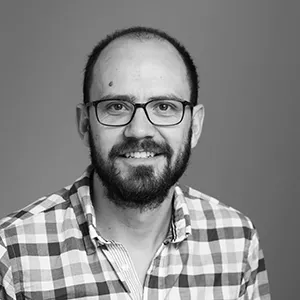Dr Juan Pablo Orjuela
Senior Research Associate and Executive Education Programme Director
About
Juan Pablo (JP) is senior research associate and executive education programme director since 2021. He joined the TSU in 2019 as a research associate in urban mobility in the PEAK Urban project, where he began his co-produced mobilities research with Dimú, a group of women with very low incomes in Itagüí, Colombia. Since, he has been working at the intersection of mobilities and health through a transdisciplinary lens in a way that incorporates a wide variety of knowledges including accessibility, air pollution, physical activity and collective wellbeing.
JP completed his PhD in environmental research at Imperial College London in 2018 where he worked on different methodologies to evaluate personal exposure and inhaled doses of air pollutants in various microenvironments. He worked at the Clean Air Institute in Washington D.C. where he conducted the evaluation of several transport projects in Latin America aimed at reducing greenhouse gas and local air pollutant emissions. He holds an MSc in Environmental Technologies from Imperial College, an MEng in Environmental Engineering, bachelor’s degree in environmental engineering, and bachelor's degree in chemical engineering from Universidad de los Andes in Bogota, Colombia.
Current Research
JP is currently working on the development of a co-produced space-time accessibility measure as a way to reduce the epistemic injustices embedded in some of current transport research. His main interests are on how mobility practices in Latin America can be understood and redefined through the lens of local communities in way that helps people live healthier lives. Recent publications and works in progress include topics of mobilities of care, air pollution exposure, climate justice, and co-produces accessibility.
Teaching
JP’s main teaching responsibilities include the direction of the Executive Education Programme at the TSU and the co-leading of the transport module of the MSc in Sustainable Urban Development. He is also a guest lecturer at the Energy Systems MSc and Environmental Change and Management at ECI.
Publications
Orjuela, J. P., Schwanen, T. (2023) Reconsidering mobility of care: Learning from the experiences of low-income women during the COVID-19 lockdown in Itagüí, Colombia. Habitat International, 142, 102965.
Yang, X., Orjuela, J. P., McCoy, E., Vich, G., Anaya-Boig, E., Avila-Palencia, I., Brand, C., Carrasco-Turigas, G., Dons, E., Gerike, R., Götschi, T., Nieuwenhuijsen, M., Panis, L. I., Standaert, A., De Nazelle, A. (2022) The impact of black carbon (BC) on mode-specific galvanic skin response (GSR) as a measure of stress in urban environments. Environmental Research, 214, 114083.
Laeremans, M., Dons, E., Avila-Palencia, I., Carrasco-Turigas, G., Orjuela, J. P., Anaya, E., Cole-Hunter, T., De Nazelle, A., Nieuwenhuijsen, M., Standaert, A., Van Poppel, M., De Boever, P., Int Panis, L. (2018) Short-term effects of physical activity, air pollution and their interaction on the cardiovascular and respiratory system. Environment International, 117, 82–90.
De Nazelle, A., Bode, O., Orjuela, J. P. (2017) Comparison of air pollution exposures in active vs. passive travel modes in European cities: A quantitative review. Environment International, 99, 151–160.
Guzman, L. A., Orjuela, J. P. (2017) Linking a transport dynamic model with an emissions model to aid air pollution evaluations of transport policies in Latin America. Transportmetrica B: Transport Dynamics, 5(3), 265–280.

